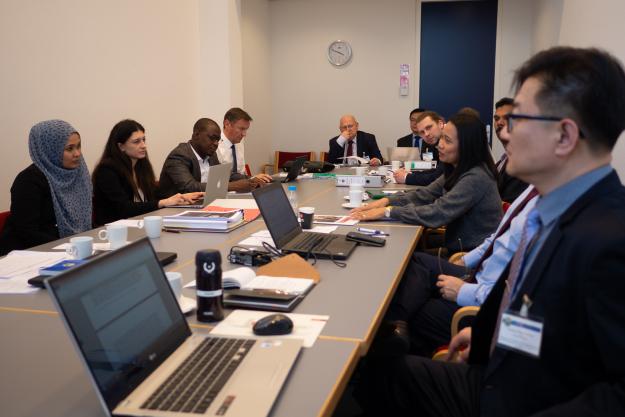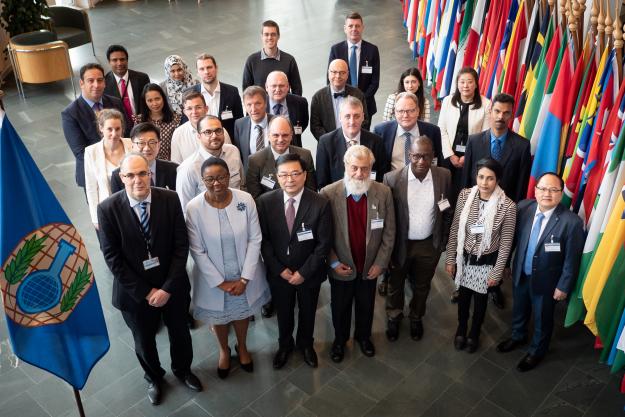
Participants at the Workshop on Developing Tools for Chemical Safety and Security
THE HAGUE, Netherlands — 27 March 2019 — The Organisation for the Prohibition of Chemical Weapons (OPCW) facilitated the first step towards the creation of non-binding guidelines on the current standards and systems of management in chemical safety and security, during a workshop held from 25-27 March at the OPCW Headquarters in The Hague.
The first edition of the Workshop on Developing Tools for Chemical Safety and Security provided a platform for a cross-sector partnership of experts who pledged to develop an indicative guidance document that will identify high-risk chemicals, as well as provide tools for chemical safety and security management.
Opening the event, OPCW’s Deputy Director-General, H.E. Ms Odette Melono, expressed that: “Fostering a culture of chemical safety and security is important to both the advancement of industry and the prevention of the re-emergence of chemical weapons. These mutual goals encompass a broad range of stakeholders, and the OPCW has an important role to play.”
The meeting, which gathered 21 professionals, comprised chemists, chemical engineers, academics, government and industry officials, as well as representatives of regional and international organisations.
The attendees participated in panel discussions on a range of topics, including: new international norms on chemical safety and security management, overview of chemical safety, security, and inventory management.
Representatives of the following OPCW Member States were in attendance: Algeria, Belgium, Brazil, China, Indonesia, Italy, Germany, Niger, Pakistan, Philippines, Republic of Korea, Sri Lanka, the United Kingdom, and the United States of America.
Representatives of the following organisations attended the event: European Chemical Industry Council (CEFIC), Organisation for Economic Cooperation and Development (OECD), and United Nations Environment Programme (UNEP).

Participants at the Workshop on Developing Tools for Chemical Safety and Security
Background
As the implementing body for the Chemical Weapons Convention, the OPCW, with its 193 Member States, oversees the global endeavour to permanently eliminate chemical weapons. Since the Convention’s entry into force in 1997, it is the most successful disarmament treaty eliminating an entire class of weapons of mass destruction.
Over 96% of all chemical weapon stockpiles declared by possessor States have been destroyed under OPCW verification. For its extensive efforts in eliminating chemical weapons, the OPCW received the 2013 Nobel Peace Prize.
